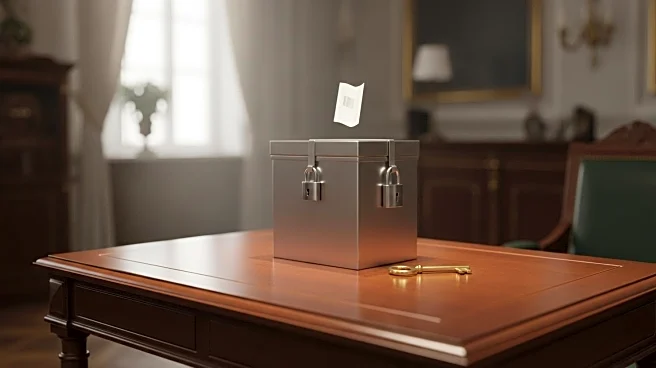What's Happening?
President Donald Trump is planning to sign an executive order that would mandate voter identification for all U.S. elections. This move aims to restrict mail-in voting and enforce the use of paper ballots in upcoming elections. The proposal is part of Trump's broader effort to overhaul the nation's election laws, which he argues are necessary to ensure election integrity. The executive order would require voters to present identification at polling stations, a measure that has been a contentious issue in U.S. politics, with debates over its impact on voter turnout and accessibility.
Why It's Important?
The introduction of a voter ID requirement could significantly impact voter participation, particularly among minority and low-income groups who may face challenges in obtaining identification. Critics argue that such measures could lead to voter suppression, while supporters claim they are essential for preventing election fraud. The executive order could also influence the political landscape by potentially altering voter demographics and affecting election outcomes. This move may lead to legal challenges and debates over the balance between election security and voter accessibility.
What's Next?
If the executive order is signed, it is likely to face legal challenges from civil rights groups and states that oppose voter ID laws. The implementation of such measures would require coordination with state election officials and could lead to changes in election procedures across the country. Political leaders and advocacy groups are expected to react strongly, with potential protests and campaigns to either support or oppose the order. The issue may also become a focal point in upcoming elections, influencing political discourse and voter mobilization efforts.










